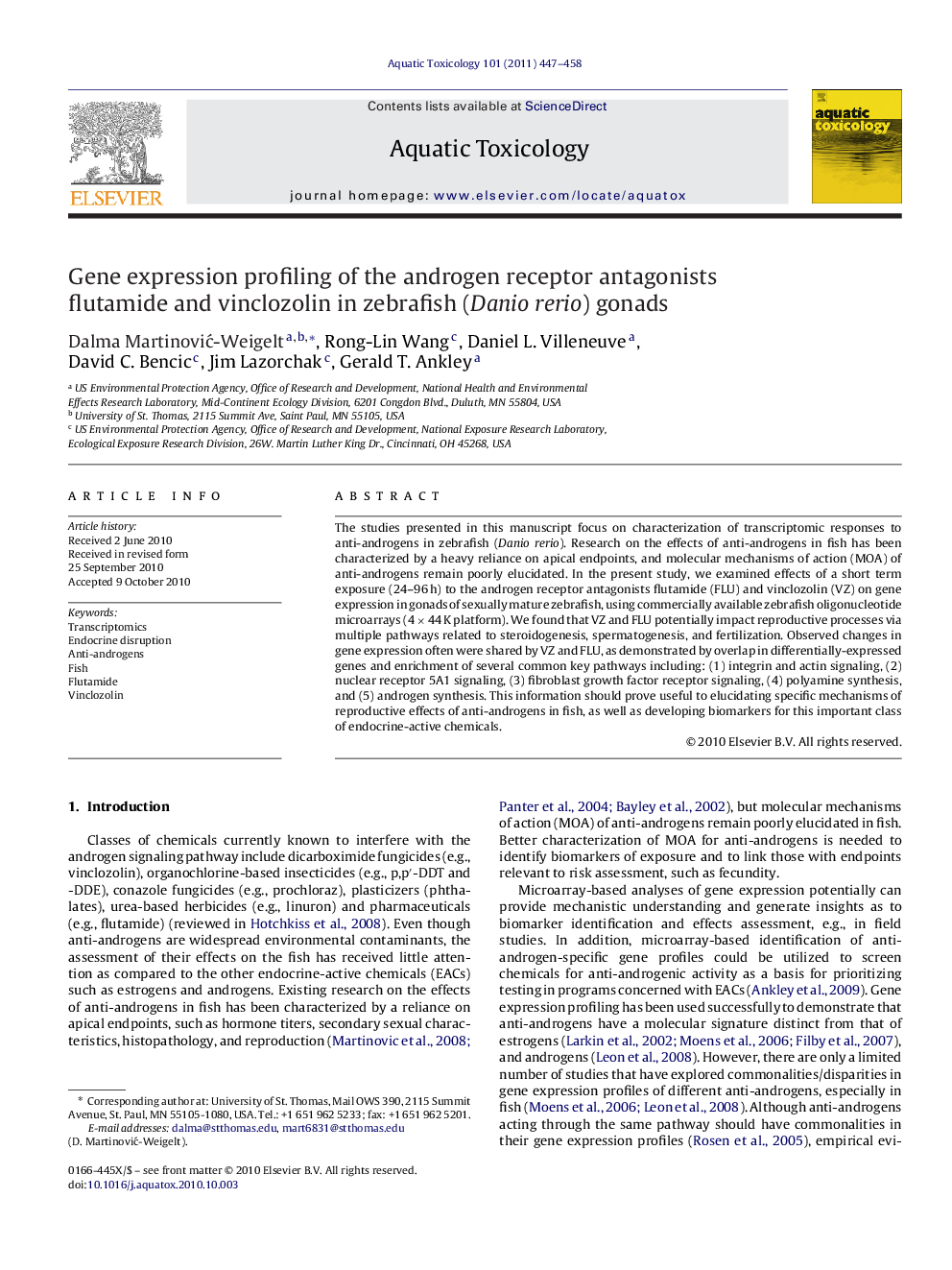| Article ID | Journal | Published Year | Pages | File Type |
|---|---|---|---|---|
| 4530059 | Aquatic Toxicology | 2011 | 12 Pages |
The studies presented in this manuscript focus on characterization of transcriptomic responses to anti-androgens in zebrafish (Danio rerio). Research on the effects of anti-androgens in fish has been characterized by a heavy reliance on apical endpoints, and molecular mechanisms of action (MOA) of anti-androgens remain poorly elucidated. In the present study, we examined effects of a short term exposure (24–96 h) to the androgen receptor antagonists flutamide (FLU) and vinclozolin (VZ) on gene expression in gonads of sexually mature zebrafish, using commercially available zebrafish oligonucleotide microarrays (4 × 44 K platform). We found that VZ and FLU potentially impact reproductive processes via multiple pathways related to steroidogenesis, spermatogenesis, and fertilization. Observed changes in gene expression often were shared by VZ and FLU, as demonstrated by overlap in differentially-expressed genes and enrichment of several common key pathways including: (1) integrin and actin signaling, (2) nuclear receptor 5A1 signaling, (3) fibroblast growth factor receptor signaling, (4) polyamine synthesis, and (5) androgen synthesis. This information should prove useful to elucidating specific mechanisms of reproductive effects of anti-androgens in fish, as well as developing biomarkers for this important class of endocrine-active chemicals.
